Carbohydrates
Carbohydrates are organic compounds which contain carbon hydrogen and oxygen molecules bonded together in the ratio (Cx H2O)y where X and Y are whole numbers. Carbohydrates together with proteins and fats nourish the body with nutrients and energy (Grosvenor, & Smolin, 2006). However, carbohydrates are the major source of energy.
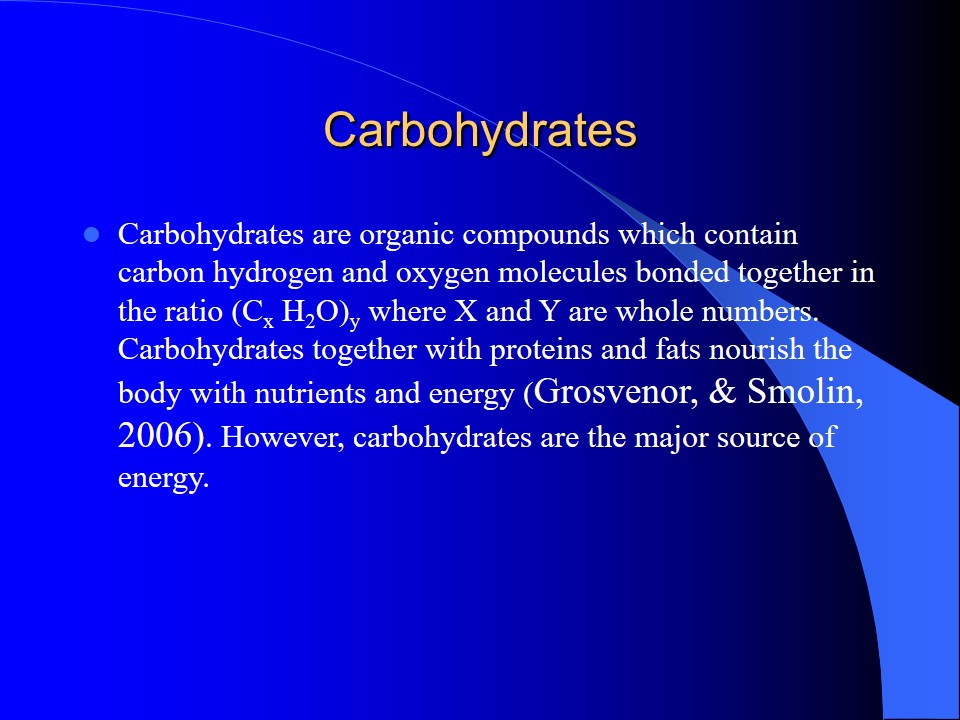
Carbohydrates Groups
Carbohydrates are grouped into two namely: simple carbohydrates and complex carbohydrates.
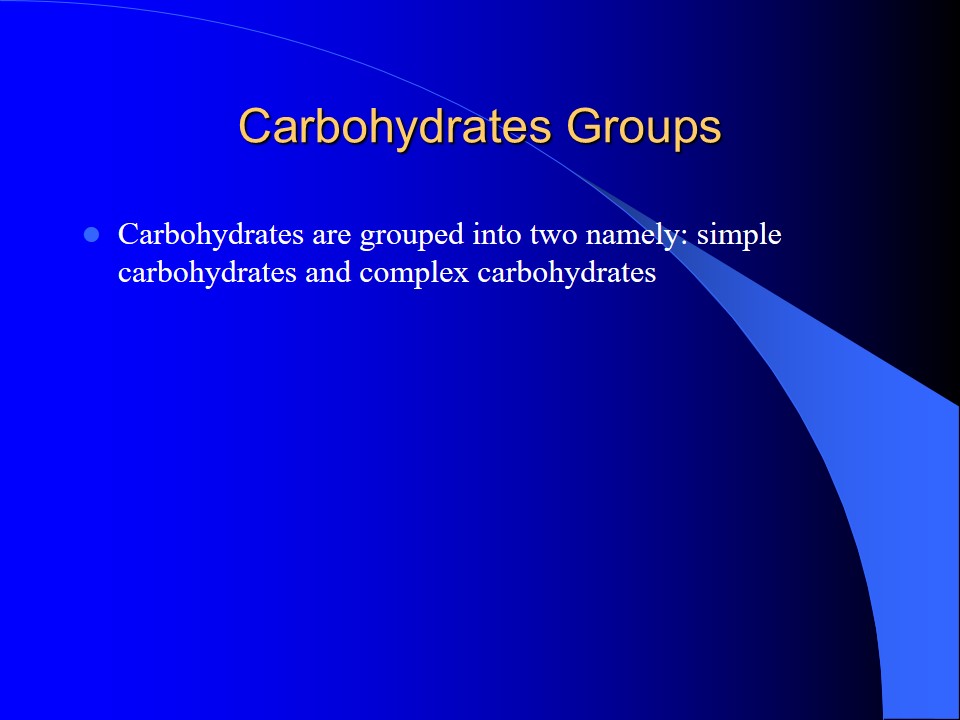
Simple Carbohydrates
- They are also called simple sugars.
- They are mostly found in refined foods like table sugar, honey and sifted flour, white flour, white rice.
- Refined foods are those foods that have been processed to remove fiber and other nutrients (Grosvenor, & Smolin, 2006).
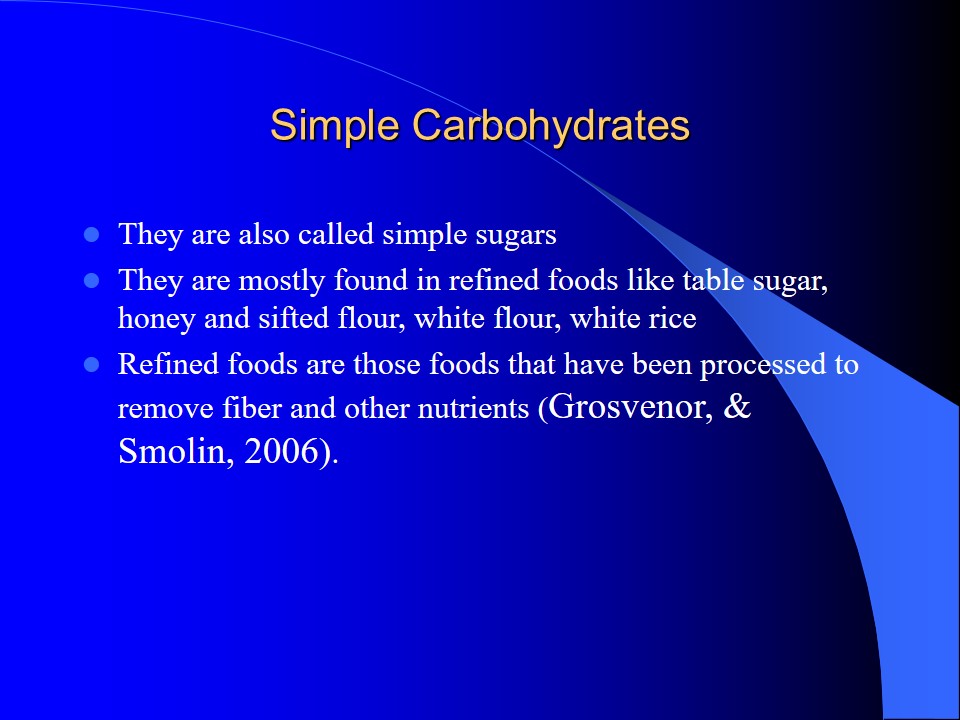
Complex Carbohydrates
- Complex carbohydrates are also known as starches. They include whole grains products, breads, crackers, pasta and brown rice.
- They are rich in fiber minerals and vitamins which are normally deficient in simple carbohydrates.
- Fiber helps in the process of digestion as well as preventing constipation.
- Fiber also reduces overeating since it is bulky, causing fullness.
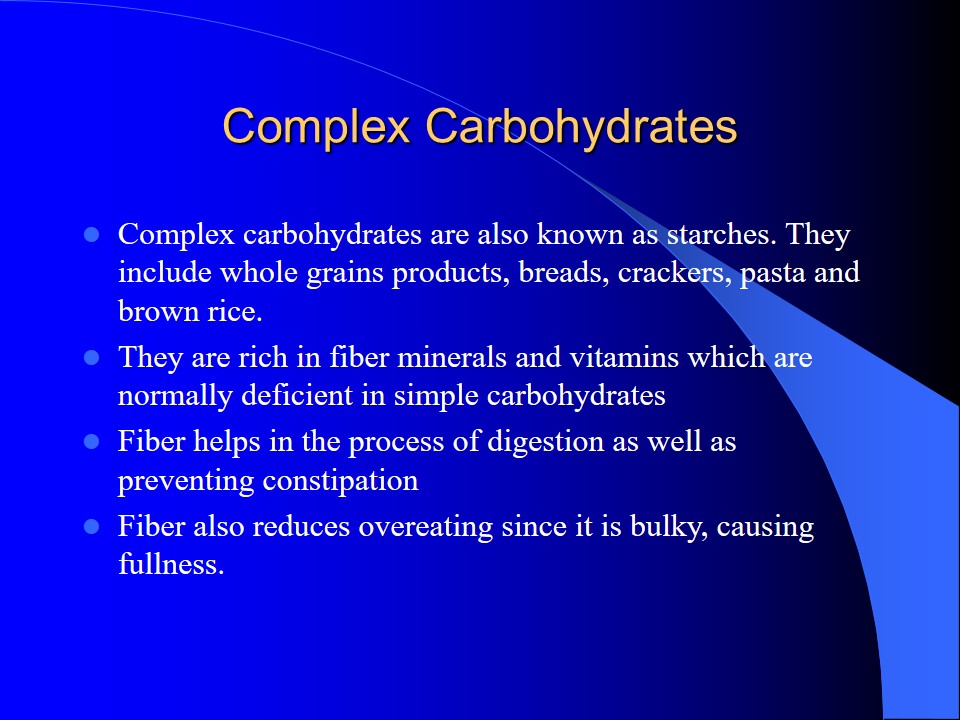
Digestion of carbohydrates
The lived breaks down carbohydrates into glucose (blood sugar). This glucose is then absorbed into the blood stream where it is a major source of energy for the body cells, tissues and organs. The rate of digestion (breakdown) of carbohydrates is determined by the type of carbohydrates.
Simple/refined carbohydrates are broken down faster than complex carbohydrates.
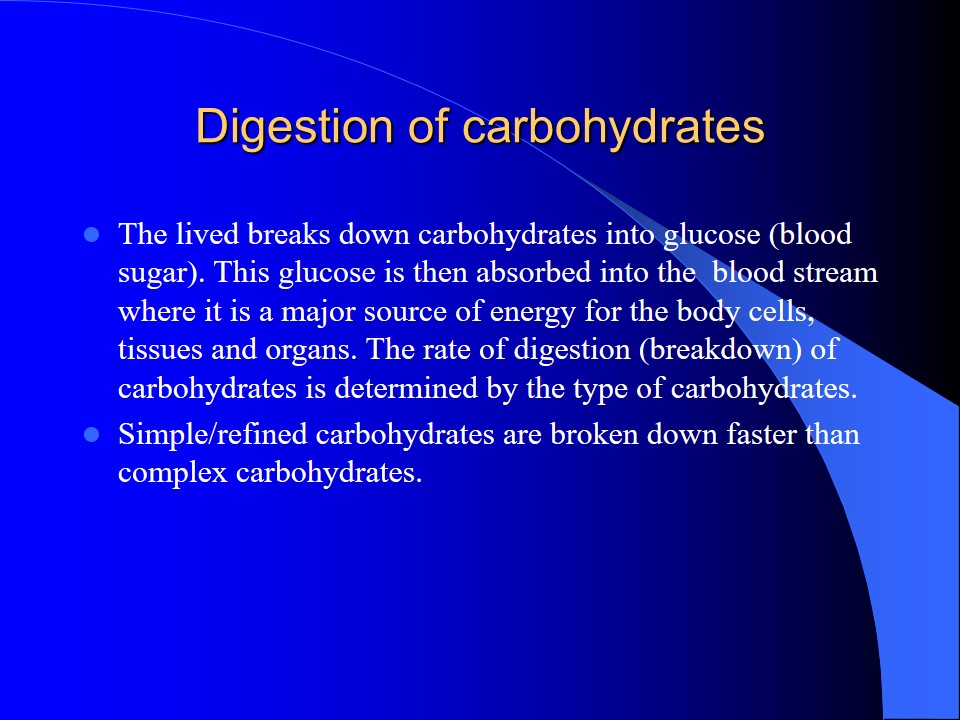
Benefits of Carbohydrates
Carbohydrates are major sources of; energy, vitamins and fiber that are essential in the optimal working of the body.
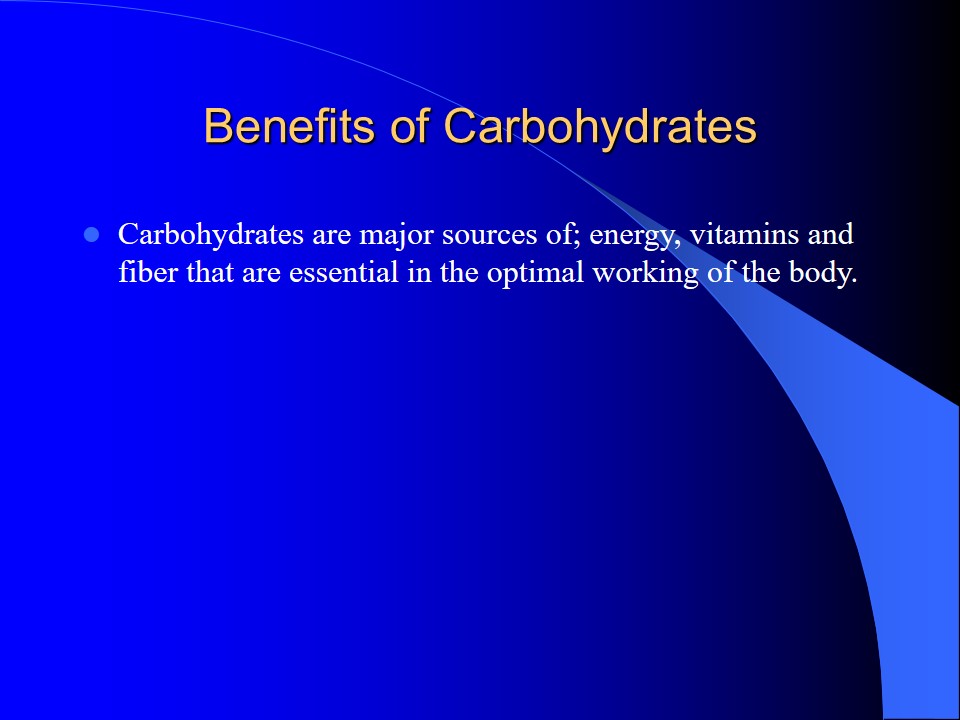
Healthy sources of carbohydrates
Whole grain products such as bread, crackers, pasta and brown rice, starch vegetables and legumes.
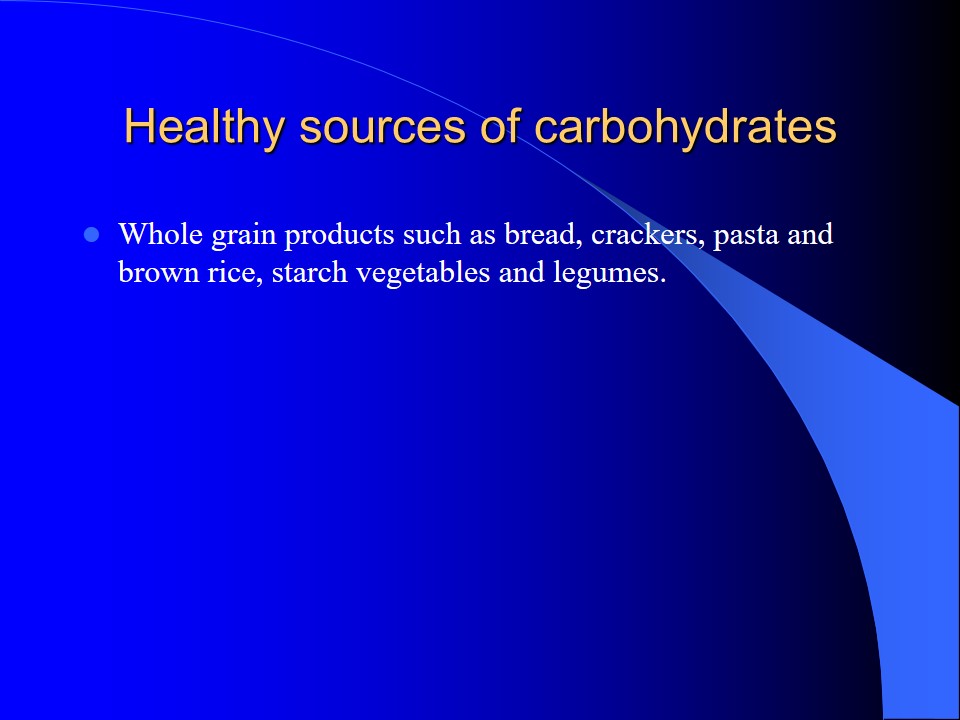
Carbohydrates and Diabetes
During the carbohydrates metabolism, glucose is absorbed into the body, the hormone insulin is released from the pancreas to regulate the blood sugar level.
Insulin converts excess sugar into fats and it is stored in the body to be used later as a source of energy.
Glycemic index measures the rate of the blood sugar accumulated in the body after a meal (Jenkins D et al 2002).
Simple carbohydrates are high glycemic index foods and are converted into glucose in a rate that insulin cannot match. This leads to accumulation of glucose in the blood to high levels leading to hyperglycemia (Liu S. 1998).
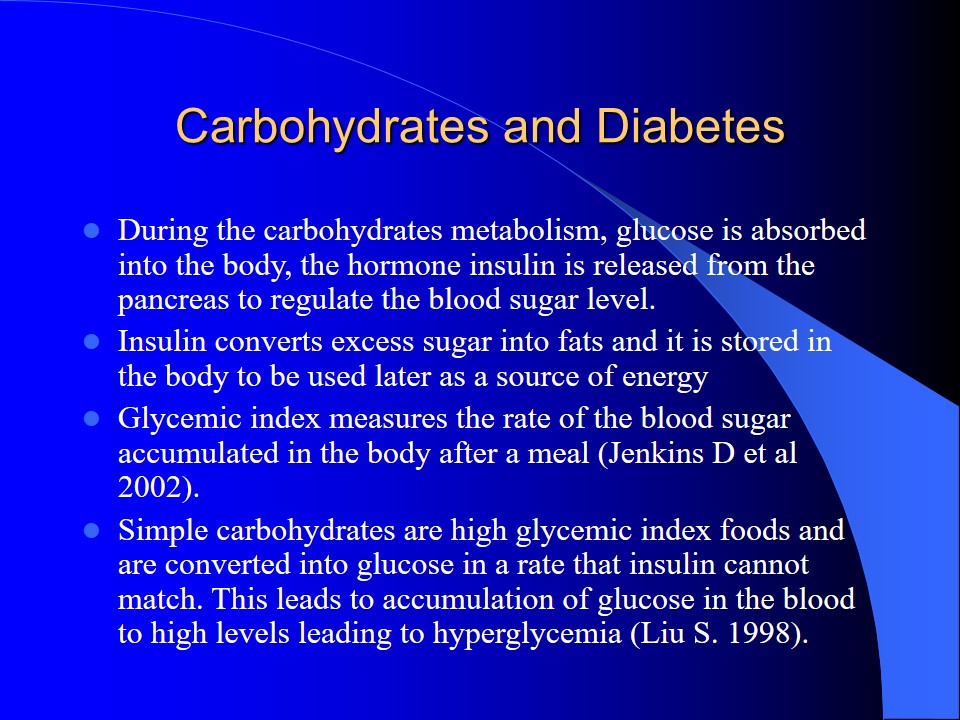
Index foods
Low gylcemic index foods (complex carbohydrates) have been shown to control type 2 diabetes.
They are hydrolyzed slowly and thus releasing little sugar into the blood which insulin is able to regulate.
Complex carbohydrates also release energy slowly for a long time resulting into decreased chances of feeling hungry. This reduces overacting and obesity which have been linked with diabetes (Jenkins D et al 2002).
Carbohydrates with more simple sugars causes blood sugar levels to rise more quickly than others. These foods causes blood glucose swings which is related to diabetes.
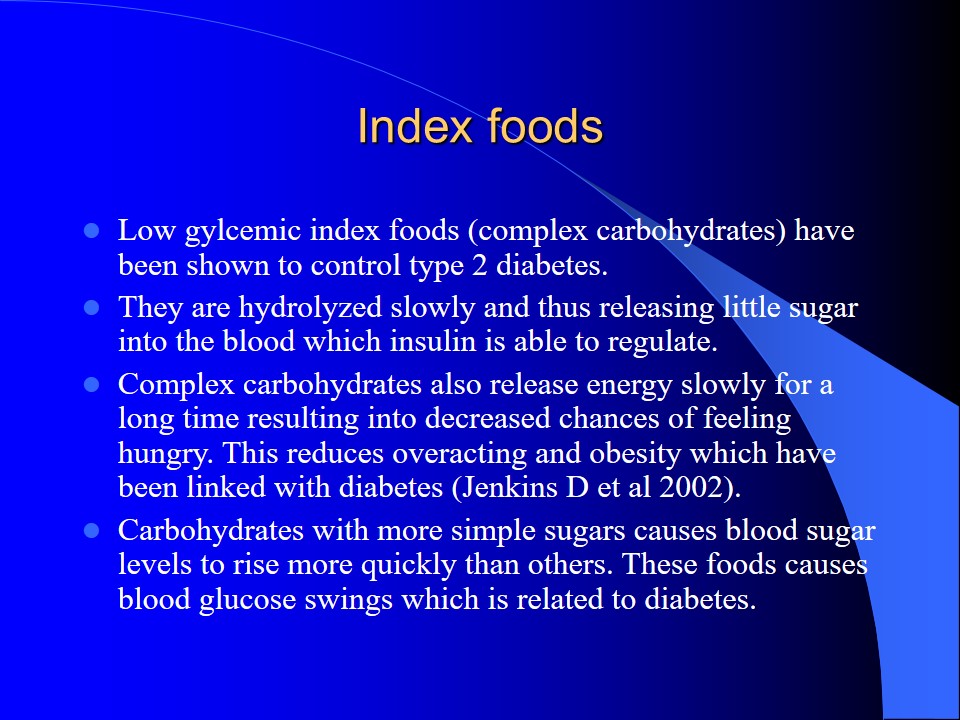
References
Grosvenor, M.B, and Smolin, L.A (2006). Everyday choices. New Jersey: John Wiley and Sons, Inc.
Jenkins D.J Kendall L.W, Augustin L.S, et al (2002)- Glyceric index: Overview of implication in health and disease. AMJ Clin Nutr.
Liu S. (1998), Insulin Resistance, Hyperglycemia and risk of major chronic diseases – a dietary perspective proc Nutrit Soc Austral.